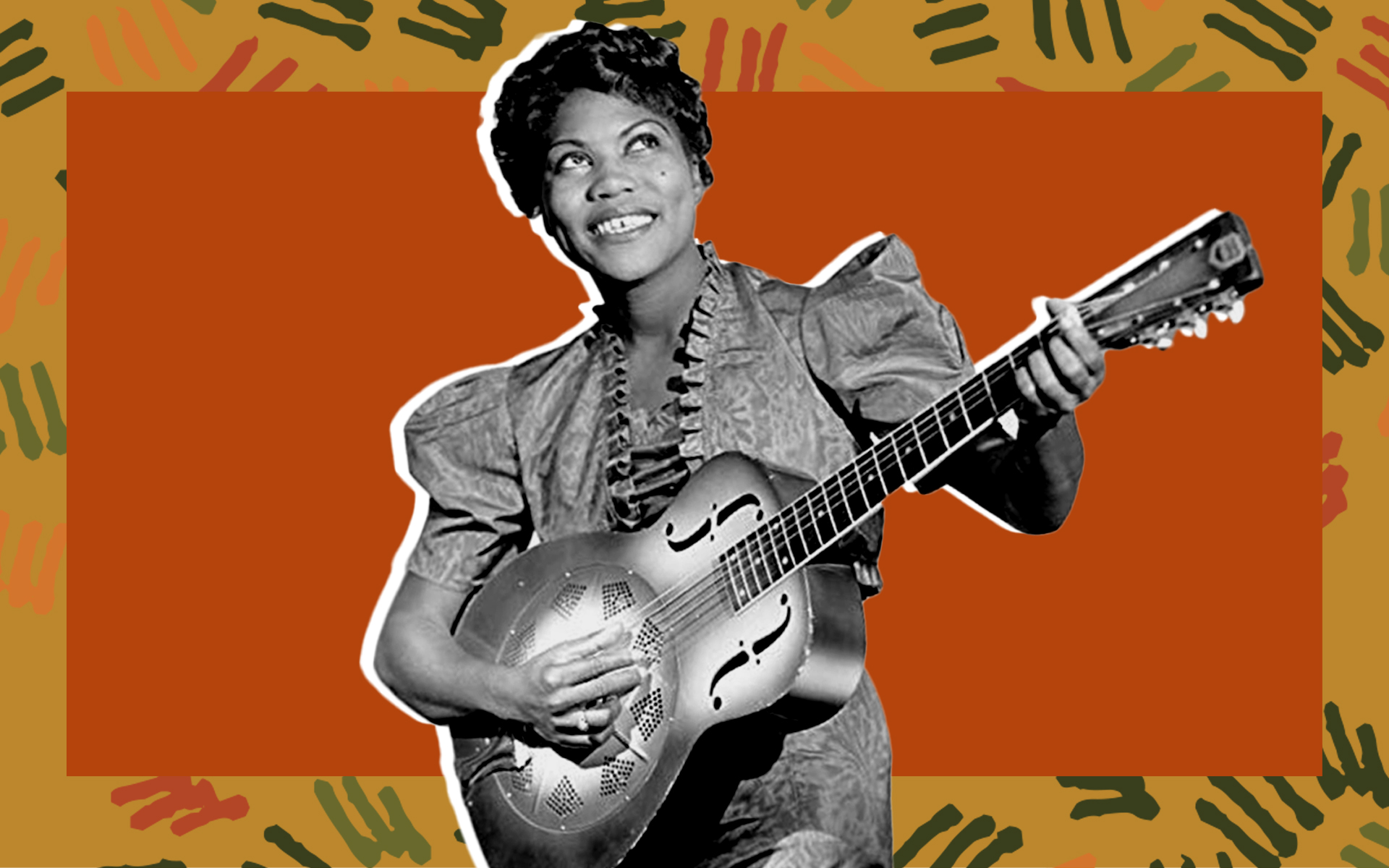Note: This article is part of Blavity's #MakingHistoryWhileBlack Black History Month series, where we highlight unsung historical Black figures whose personal stories are deserving of more prominence.
Everyone likes to argue about who’s the definitive king of anything substantial: Michael Jackson is the king of pop. James Brown is the king of soul. George Clinton is the king of funk. B.B. King is the king of blues. Elvis is the king of rock.
Well, most Black folks know that last bit isn’t true. Elvis himself reportedly once said, “A lot of people seem to think I started this business. But rock 'n' roll was here a long time before I came along. Nobody can sing that kind of music like colored people. Let's face it: I can't sing like Fats Domino can. I know that.”
While many may argue about who the king of rock was, the fact of the matter is the king of modern rock is actually a sister: Sister Rosetta Tharpe.
Even if you’re not familiar with Tharpe you’ve undoubtedly heard her influence. Chuck Berry himself had been quoted as admitting that his career was “one long Rosetta Tharpe impersonation.”
Born Rosetta Nubin in Cotton Plant, Arkansas, in 1915, her mother was a traveling Gospel singer and mandolin player. Such an environment immersed a young Rosetta in the Evangelical style of shouting coupled with radical showmanship. It was no wonder, then, that she started playing the guitar at only four and at six began joining her mother on stage, according to The Encyclopedia of Arkansas. She was hailed as a protégé and though her singing was impressive for a child, it was her guitar playing that eventually catapulted her to stardom.
Anyone who’s ever been to Black church knows that it’s not quiet. When Tharpe started traveling with her mother as an evangelist for The Church of God in Christ, she had to develop a practical way for her guitar to be heard over the rambunctious singing and preaching. According to Caryn Rose for NPR, this resulted in Rosetta creating a “unique style of fingerpicking that wasn't simple accompaniment, but rather a way to expand her sound.” By the time she made the switch to the electric guitar, her trademark playing was perfectly suited for the instrument and laid the foundation for modern rock and roll as we know it.
YouTube | Glen Marijnissen
She married minister Thomas A. Thorpe in 1934. The marriage didn’t last but she used a variation of the last name for the stage, creating the iconic persona that we know today. Around that time, in 1938, Tharpe signed to Decca Records where she was an immediate success releasing hits like “This Train,” “Hide Me in Thy Bosom,” and “Rock Me” establishing Tharpe as one of the nation’s first commercially successful gospel artists.
And still, classifying Tharpe's work as exclusively gospel would be a shallow understanding of her contribution. Her 1945 single “Strange Things Happening Every Day” was the first gospel single to cross over to what was called the “Harlem Hit Parade” (later known as "race" and then R&B) Billboard charts, according to the National Museum of African American Music. Secular charts holding space for gospel artists were unheard of and Tharpe's ability to entrance both audiences was a testament to her massive popularity and appeal. If anything best encapsulates her forward-thinking contributions, it's worth noting that she was the first person to put a 14-year-old Little Richard on stage.
Though Tharpe found success during her career, maybe predictably, her influence on creating the rock and roll genre was largely overlooked due to race and age. In her later years, she found it hard to compete with younger stateside acts and made a living touring Europe. She transitioned after suffering a stroke in 1973 and was buried in an unmarked grave until a proper headstone was purchased for her via a benefit concert put on by a fan in 2009.
Even after death, white male rock artists who were very much aware of Tharpe's importance continued to reap more praise than her.
In 1992 Johnny Cash was inducted into the Rock & Roll Hall of Fame and didn't mince words about his early songwriting inspiration.
"It was at the Home of the Blues record shop where I bought my first recording of Sister Rosetta Tharpe singing those great gospel songs," he said in front of the Rock Hall crowd. "Some of the earlier songs I wrote were influenced by people like Sister Rosetta Tharpe," Cash said, according to NPR.
Tharpe, the inspiration, wouldn't be inducted into the Hall of Fame until 27 years later, in 2019, where Brittany Howard of Alabama Shakes led a performance honoring the late artist.
YouTube | Rock & Roll Hall of Fame
Today, more than ever, the visibility of her legacy seems to be unapologetically pushed to the forefronts by Black women performers (no surprise or complaint there).
Blavity reported how during Lizzo's debut 2019 SNL performance, her guitarist Celisse Henderson paid homage to Tharpe when she rocked an outfit similar to the icon's style with the word "sister" emblazoned on her guitar strap.
Bingo https://t.co/IuhxWEBzyf— Feelin Good As Hell (@lizzo) December 23, 2019
Through cultural influence, Black history is often world history. Tharpe's recognition may have arrived slower than it should have, but it can be assured that her contribution to world culture is forever growing and Black women appear to be leading the charge, ensuring that she never gets lost again.
